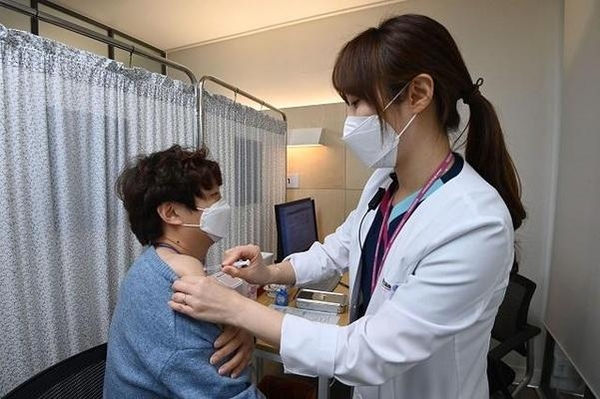Input 2021.02.10 10:04
82% say’vaccine is important’ and only 57% say’I will be vaccinated’

The research team at Seoul National University Graduate School of Public Health recently released the results of a survey conducted on 1068 men and women aged 18 years or older in Korea, together with CaseTac Research, a professional opinion poll.
According to the survey, 26.8% of respondents said, “I want to postpone the timing and sequence of vaccinations to the next,” and 4.9% of the respondents “will refuse to be vaccinated” when asked, “How do you want to act on the government’s schedule for promoting the corona 19 vaccination?” ‘Replied. 31.7% said they would postpone or refuse vaccination.

56.8% of the respondents said’I will fit my order’ and’I want to get right even a day’. Regardless of the actual vaccination, to the other question,’How important is vaccination to me’, 82.2% answered that it was’important’, and the majority of respondents were found to be aware of the importance of vaccination.
Vaccines are considered important, but the tendency to avoid actual vaccination is interpreted as anxiety due to the possibility of adverse reactions. In particular, the AstraZeneca vaccine, which will arrive on the 26th, is causing controversy in various countries over whether or not to use the AstraZeneca vaccine due to lack of clinical data for the elderly over 65 years old.
Prof. Yu said, “Intention to vaccination is a self-decision that is formed by combining individual attitudes, beliefs, and expectations with understanding of vaccine information,” he said. “Health authorities avoid unilateral information transmission and provide accurate social communication related to vaccines. He said there was a need to actively develop with facts.
In fact, as a result of analyzing the correlation between the level of understanding of the vaccine and the attitude toward vaccination, the research team found that the higher the level of understanding, the more positive it is for vaccination.
By age, the 50s were the most positive for vaccination and the 30s were the most negative. When asked’How important is vaccination to me’, 90.8% of those in their 50s and 71.7% of their 30s answered that it is’important’. Other age groups were 73.4% in their 20s, 79.8% in their 40s, and 89.8% in their 60s or older.
